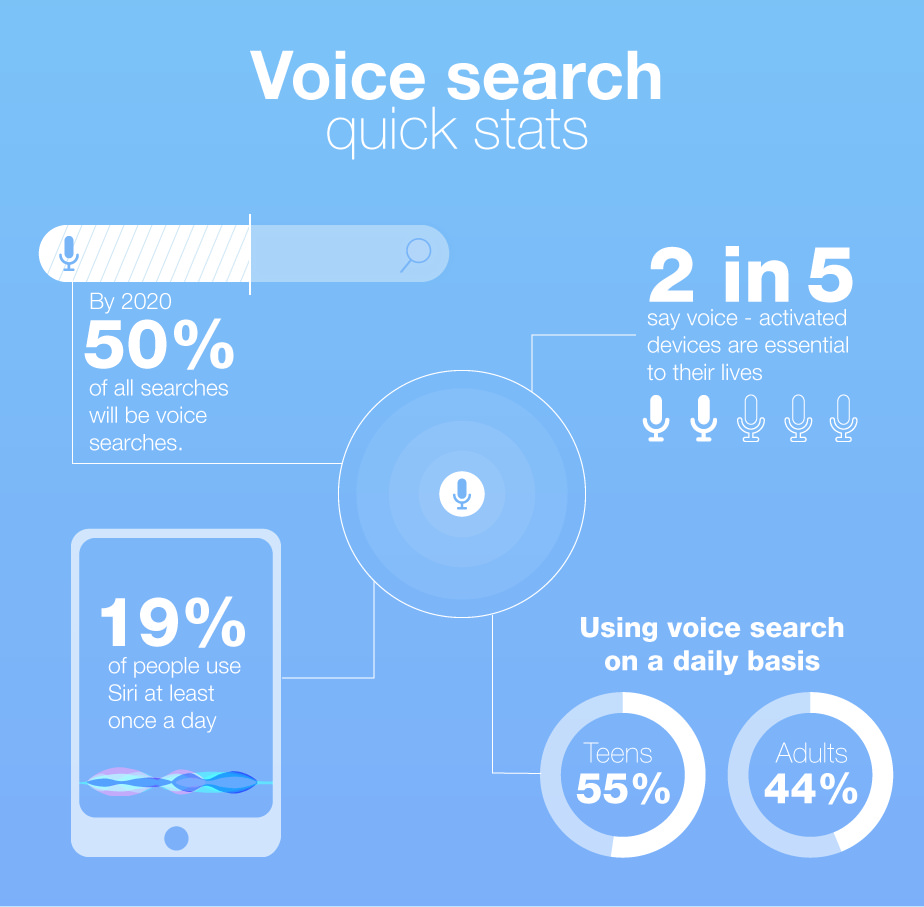Voice Search Statistics heading into 2020
- eMarketer predicts that over a third of the US population (111.8 million people) will use a voice assistant monthly in 2019, up 9.5% from 2018.
- ComScore predicts that by the year 2020, 50% of all online searches will be performed with voice search.
- A Gartner study predicts that 30% of all browsing sessions will include voice search by 2020.
- According to NRP and Edison Research, 1 in 6 Americans owned a smart speaker in 2018.
- 1 of every 4 American homes equipped with Wi-Fi owned a smart speaker in 2018, according to Nielsen.
- According to Google, 52% of smart speaker owners keep them in a common room such as a living room. 25% of these people keep them in their bedroom, while 22% keep a smart speaker assistant in their kitchen.
- A 2018 study from BrightLocal found that 58% of consumers used voice search to find a local business in 2017, and 46% of people using voice search daily are searching for local business.
- According to an Adobe Analytics survey, the most common voice searches on smart speakers are asking for music (70%) and the weather forecast (64%), followed by fun questions (53%), online search (47%), news (46%), and asking directions (34%).

How you can optimize for Voice Search?
Some points to be kept in mind while preparing keywords for voice searches are:
- Using natural language with direct answers to specific questions is key.
- Question keywords should be targeted. As illustrated before, voice search queries contain a lot of question words like how, what, when, why, where. The next time you add keywords for voice search, make sure you include these.
- Long-tail keywords complete a question, and people have been sticking to this approach when using voice. We shouldn’t ignore long-tail keywords when we optimize for voice searches.
- “Filler words” are a must to be included in questions which make the query more conversational and human. The examples of filler words are “I, the, of the, on the, to, for,” etc.